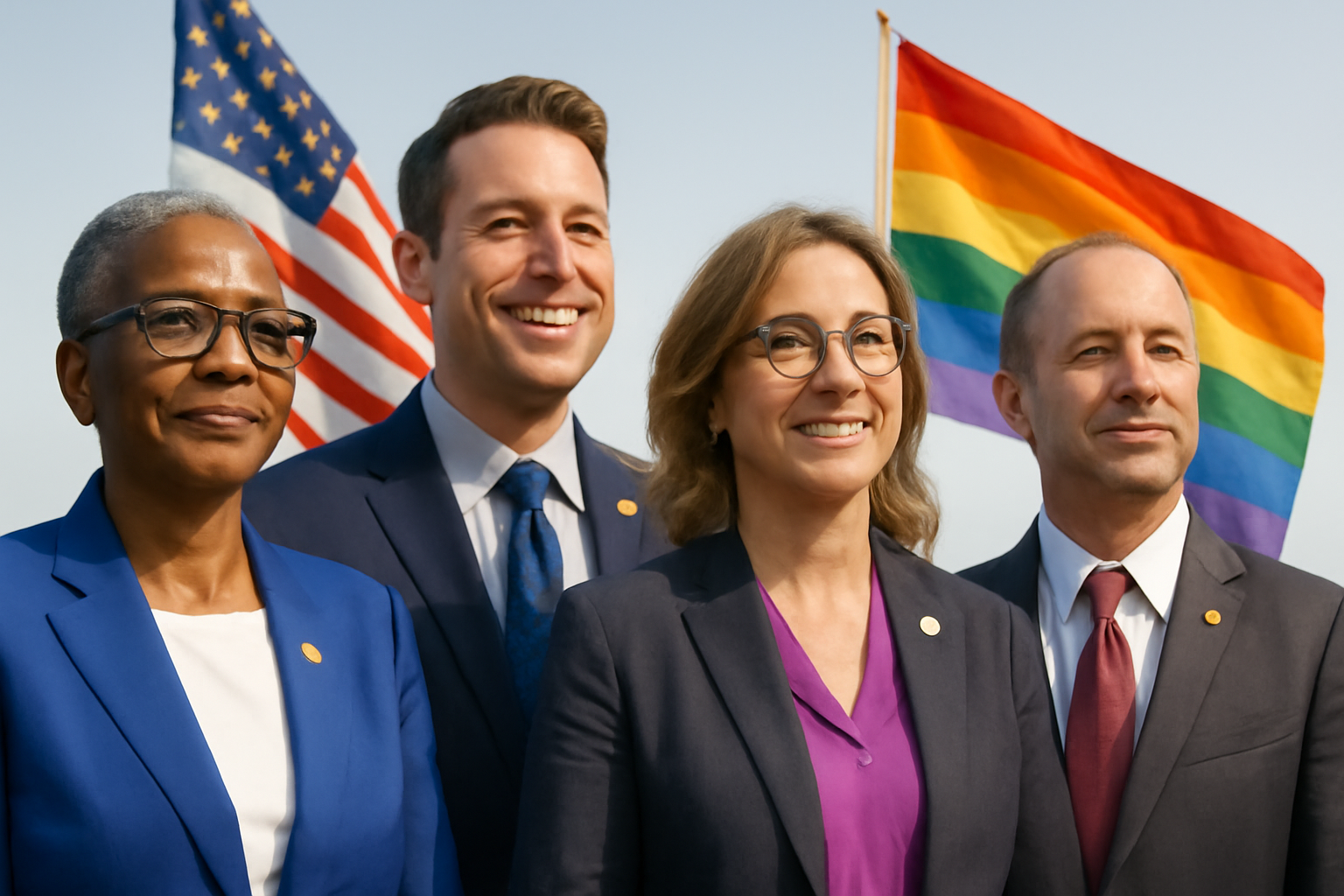
In a recent development that has garnered significant attention, members of the LGBTQ+ community in Congress have expressed cautious optimism regarding the ceasefire agreement reached in Gaza. This ceasefire, which aims to halt the ongoing conflict and bring relief to civilians on both sides, has been a focal point of international diplomacy and grassroots advocacy efforts for peace.
Representatives known for their vocal support of both human rights and LGBTQ+ issues have weighed in on the matter, acknowledging the complexities involved in achieving a lasting peace in the region. These leaders emphasize the importance of maintaining a balanced approach that not only secures a temporary halt to hostilities but also addresses the underlying causes of conflict.
The Role of LGBTQ+ Advocacy in Peace Efforts
LGBTQ+ leaders in the U.S. Congress have long been at the forefront of advocating for human rights on a global scale. This includes supporting efforts that promote peace and justice in regions experiencing prolonged conflict. The ceasefire in Gaza is viewed as a critical step towards reducing violence, but these leaders understand that true peace requires more than just a cessation of hostilities.
"Peace is not merely the absence of war," said one prominent LGBTQ+ Congress member. "It is the presence of justice and equality for all people. We must seize this opportunity to foster dialogue and reconciliation, ensuring that future generations can live without fear of violence."
Complex Challenges Ahead
While the ceasefire is a positive development, many challenges remain. Members of Congress acknowledge that the path to lasting peace is fraught with obstacles, including deeply rooted political tensions, economic disparities, and social injustices that must be addressed.
These leaders are particularly concerned about the impacts of prolonged conflict on vulnerable communities, including LGBTQ+ individuals in the region. Reports of discrimination and violence against LGBTQ+ people in conflict zones highlight the urgent need for inclusive peacebuilding processes that protect the rights of all individuals, regardless of sexual orientation or gender identity.
Building a Sustainable Peace
The ceasefire presents an opportunity for renewed diplomatic efforts to create a sustainable peace framework. LGBTQ+ members of Congress are advocating for an inclusive approach that prioritizes the voices of marginalized communities in peace negotiations.
"We must ensure that peace talks include diverse perspectives and address the needs of all communities affected by the conflict," said another LGBTQ+ Congress member. "This includes LGBTQ+ individuals who often face unique challenges in conflict and post-conflict scenarios."
As the international community watches closely, LGBTQ+ leaders are committed to leveraging their platforms to promote a holistic approach to peace that encompasses not just political agreements but also social and economic reforms.
Looking Forward
In the coming months, the role of U.S. lawmakers in supporting diplomatic efforts will be crucial. LGBTQ+ members of Congress are calling for sustained engagement, transparency in negotiations, and accountability for all parties involved.
"We must remain vigilant and hold ourselves and others accountable to the principles of peace, equality, and human rights," emphasized a leader in the LGBTQ+ congressional caucus. "This is our chance to build a more just and peaceful world for everyone."
The cautious optimism expressed by LGBTQ+ leaders reflects a broader hope that the ceasefire will pave the way for enduring peace in Gaza and beyond. As efforts continue, they remain dedicated to advocating for policies that uplift marginalized voices and promote justice on the international stage.
Related Posts
Triumphant Trans Woman Wins Legal Battle and Inspires Others to Stand Up for Their Rights
Breaking new ground: a landmark victory in transgender rights After battling in courtrooms and enduring endless challenges, Diana Portillo, a transgender woman, has secured a monumental victory in her decade-long fight against workplace discrimination. The result? Nearly $1 million awarded in a historic settlement. But this isn't just a win on paper—it represents a powerful precedent in combati [...]
Pride Month in Latin America: Protests and Demands for Equality
**Celebrating Pride and advocating LGBTQ+ rights in Latin America** Pride Month in Latin America was a lively mix where celebration met activism. Communities united, not just throwing a party but making a stand—demanding equality and pushing governments toward better protection and rights recognition. Throughout Latin America, pride events erupted in marches and cultural displays, each with a c [...]
Transgender Erasure Actions Implemented by National Park Service
```html Trump administration's impact on national park service and transgender recognition The Trump administration made notable moves in undermining transgender representation, which included directing agencies like National Park Service not include "T" and "Q" when they refered “LGBTQ” in any official communication. This move seems part a broader plan by this administration aimed at reducin [...]